#House of Orléans
Explore tagged Tumblr posts
Text
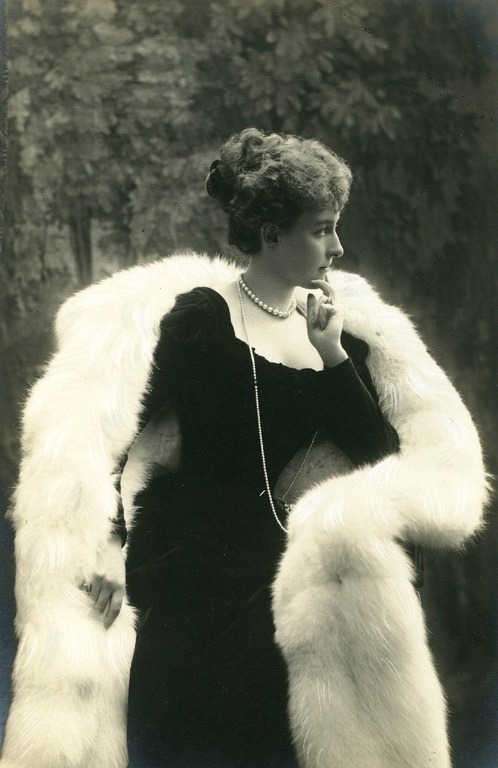
Princess Hélène of Orléans, 1905.
#aesthetic#fashion#historical fashion#women in art#historical art#photography#royalty#royals#royalty aesthetic#edwardian aesthetic#Edwardian fashion#1900s clothing#1900s fashion#Orléans#house of Orléans#Helene of Orléans#I am obsessed with this look#1900s style#historical dress#women#art history#art#fashion photography#fur coat#Princess#princess aesthetic
192 notes
·
View notes
Text
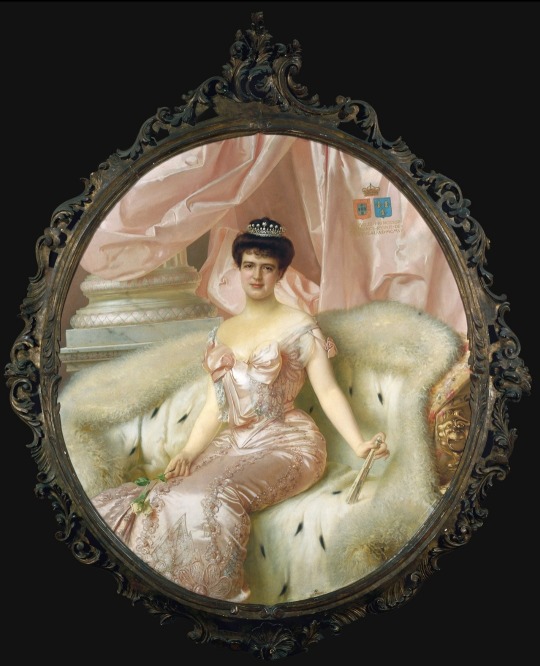
Portrait of Amélie of Orléans, Queen of Portugal by Vittorio Matteo Corcos, 1905
#new post#historical fashion#Amélie of Orléans#Vittorio Matteo Corcos#vittorio matteo corcos#early 1900s#circa 1900#circa 1905#historical#aesthetic#20th century fashion#queens#House of Orléans#pink aesthetic#pink#italian painter#portrait#royals#royalty#old royals#royal families#coquette
26 notes
·
View notes
Text

“Princess Louise of Orleans is an underrated beauty.” - Submitted by Anonymous
11 notes
·
View notes
Text

Portrait of Élisabeth Charlotte of Orléans (1676-1744), formerly identified as her niece Marie Louise Élisabeth d'Orléans (1695-1719). By Nicolas de Largillière.
#royaume de france#Nicolas de Largillière#maison de bourbon#maison d'orléans#bourbon orleans#Élisabeth Charlotte of Orléans#mademoiselle de chartres#chartres#orléans#Marie Louise Élisabeth d'Orléans#duchesse de berry#duché de berry#art#portrait#house of bourbon#kingdom of france
7 notes
·
View notes
Text

Joan of Arc Before Orleans. Unknown artist.
#royaume de france#guerre de cent ans#jeanne d'arc#la pucelle d'orléans#in armour#la pucelle#la guerre de cent ans#house of valois#orléans#orleans#hundred years' war#joan of arc#saints#catholic church#patron saint of France#siege of Orléans#domrémy#Jeanne la Pucelle#Joan the Maiden#Maid of Orleans#full length portrait#hundred yars war#full-length portrait
3 notes
·
View notes
Text
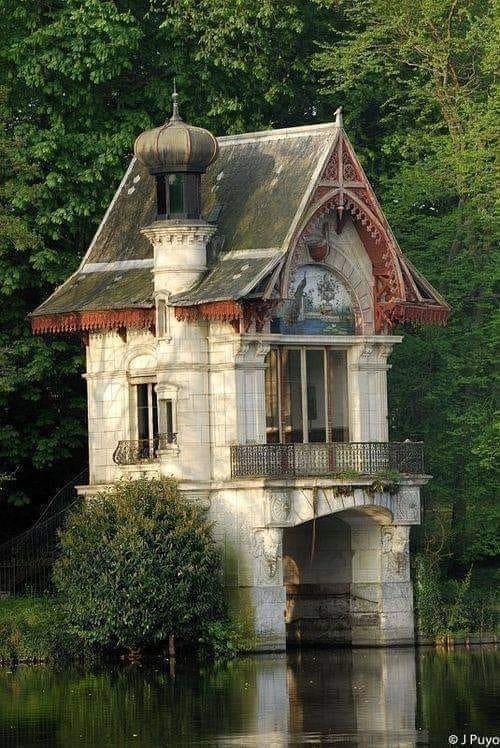
“Claire stretched out against the wall and kissed it. "Glad to see you, too," she whispered, and pressed her cheek against the smooth surface. It almost felt like it hugged her back. "Dude, it's a house," Shane said from behind her. "Hug somebody who cares.” ― Rachel Caine
56 notes
·
View notes
Text
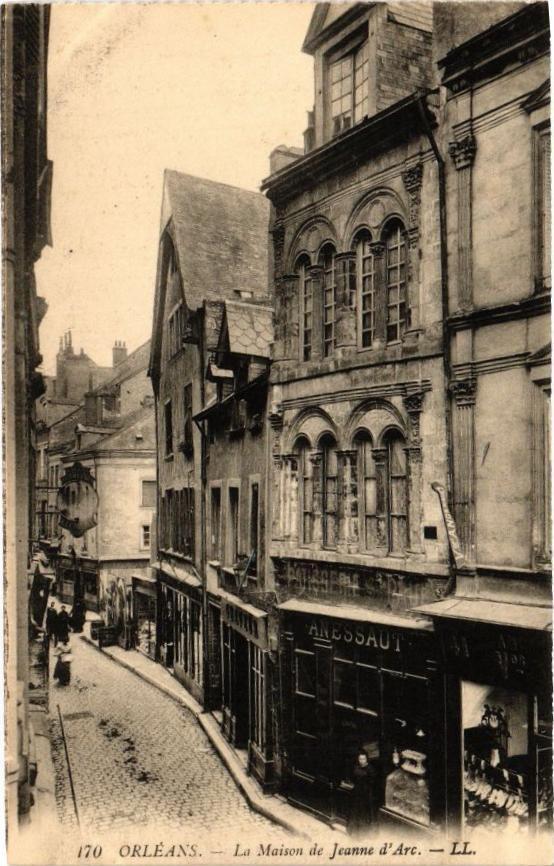
House of Jeanne d'Arc in Orléans, Orléanais region of France
French vintage postcard
#ephemera#photography#vintage#briefkaart#orlans#orléannais#carte postale#french#reigon#jeanne#postcard#photo#sepia#jeanne d'arc#ansichtskarte#orléans#postkarte#orlannais#postkaart#france#d'arc#postal#house#tarjeta#historic
8 notes
·
View notes
Text
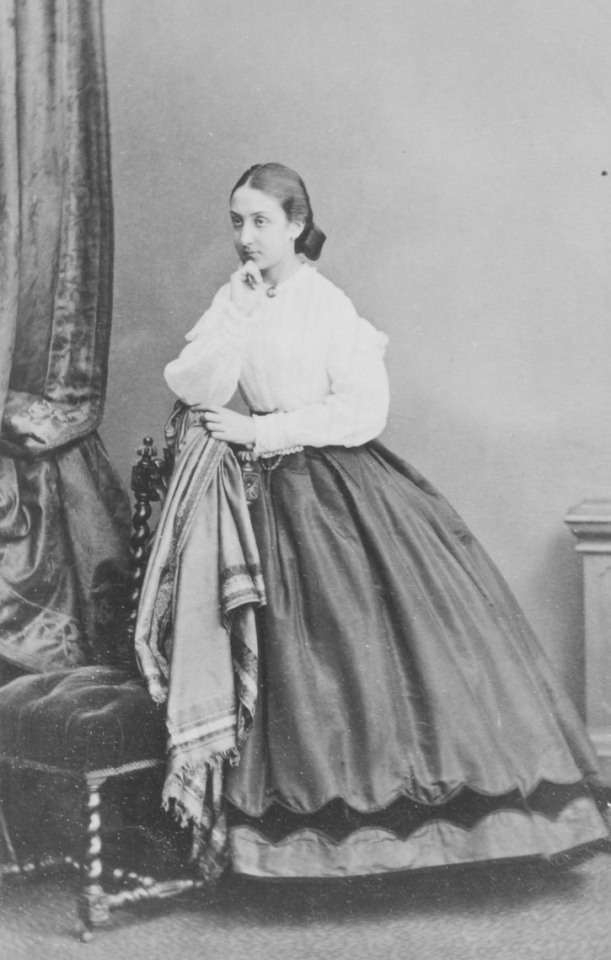
Princess Maria Amelia of Orléans, Infanta of Spain (28 August 1851 – 9 November 1870) was a Princess of Orléans and Infanta of Spain who was the second child of Antoine, Duke of Montpensier and Infanta Luisa Fernanda, Duchess of Montpensier. She was a paternal granddaughter of Louis Philippe I and maternal granddaughter of Ferdinand VII of Spain.
#Maria Amalia of Orléans#xix century#people#House Orléans#portrait#photo#photography#black and white
3 notes
·
View notes
Video
[226] Staying in the game by Eric DeLorme
#in the yard#around the house#summer#still in the game#Fallingbrook#fern#Orléans#afternoon light#at home#FUJIFILM#Ontario#Canada#XF30mmF2.8 R LM WR Macro#X-T5#ON#Orleans#365: the 2023 edition#365:2023#Day 226/365#14-Aug-23#flickr
0 notes
Text
Uttara Bhadrapada & Revati: Psychic Insight, Time Travel & Dreams
In my last post about Punarvasu & Swati, I had briefly gone into their association with time travel but in my research since I have found that Pisces rashi (0-3 degress Purvabhadrapada, Uttarabhadrapada & Revati) is also connected to time travel, as well as with psychic powers and using these abilities to solve crimes, prevent disasters or save others. This is an important distinction because not everybody uses their paranormal/supernatural powers to do good necessarily.
The word spirituality has been so over used in the last decade or so that it has now kind of lost all meaning as most people don't understand it in its true sense of transcending the material but instead as a way to play around with crystals or tarot or astrology, engaging with these tools in the most shallow way possible and using it as a balm to remain in the loop of earthly attachment.
Some people are born with an inherent understanding of what it means to be connected to the spirit. Due to the way religion & belief are often structured, not all of these people will identify their own beliefs as spiritual ones but you've got to admit that some people are just naturally intuitive and capable of understanding things in a way that goes beyond education or any taught knowledge. What is intuition though? Is it just a profound inner knowing? Usually, it is a combination of several things, including observational skills, the ability to be perceptive and understand what lies beyond the surface, deduction etc. Intuition isn't always knowledge from the beyond but it can also refer to the ability to read a room or a person and be emotionally intelligent enough to behave accordingly.
I am by no means suggesting that all Pisces natives are this way. They are not. But I have noticed several Pisces natives possessing a heightened sense of perception & intuition. This is just water sign culture tbh and as you'll see in the post, also extends to other rashis/nakshatras.

Derren Brown, the British magician & mentalist is a UBP Moon. He's a skeptic himself and has repeatedly said he does not possess any psychic powers but he's never really gone into his methods either. You could say that he has astute observational skills that makes his performances truly one of a kind but its pretty incredible to train yourself to do what he does; you can only build on the natural acumen you possess.
youtube
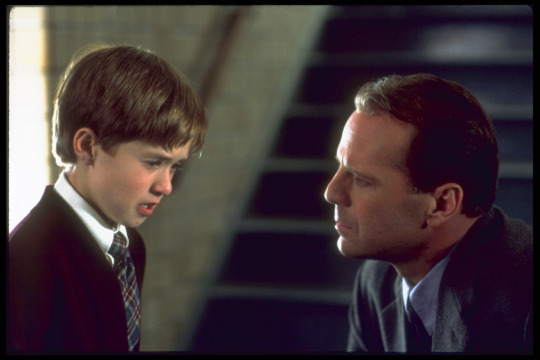
The Sixth Sense is a pretty iconic film in the "child has visions" genre and it stars Haley Joel Osment, Revati sun & mercury as well as Bruce Willis who is UBP Sun
Bruce also starred in a movie (also directed by M Night Shyamalan) called Unbreakable where his character has psychometric powers.

Psych is detective comedy drama series (very underrated imo) that features a guy who possesses eidetic memory and great observation skills and uses it to convince the police department he is a psychic.
James Roday Rodriguez who plays this character has Revati sun & mercury, Venus in Pisces (2 degree Purvabhadrapada )
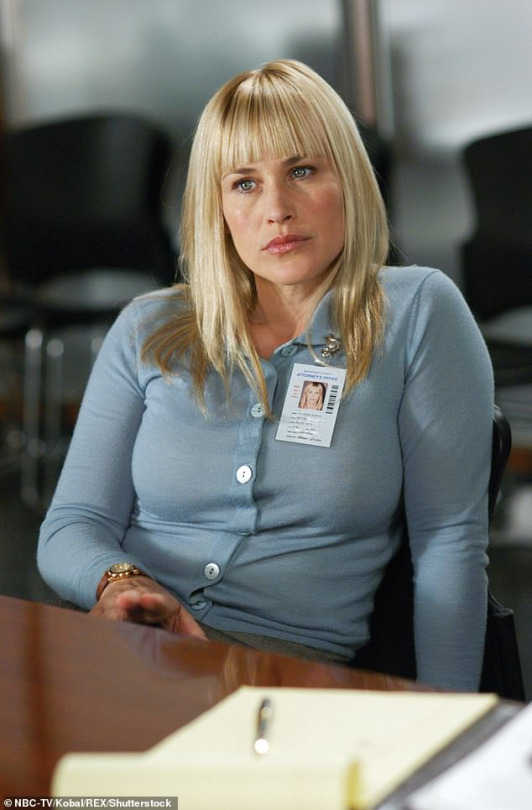
Patricia Arquette stars as a psychic medium in the show Medium (honestly the police department x psychic consultant is one of my fav tropes of 2000s television). She has a Revati stellium (sun, saturn & rahu) and UBP mercury and venus.
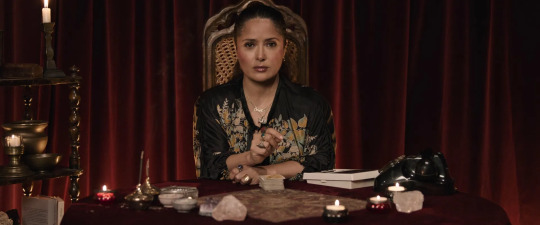
Salma Hayek, UBP Moon, plays a psychic medium in House of Gucci (based on a true story)

Devon Sawa who played the main character on Final Destination (he has premonitions and tries to help others avoid death) has Ketu in UBP

Joan of Arc, UBP Moon went to King Charles at the age of 17 as she was guided by visions from the archangel Michael, Saint Margaret, and Saint Catherine to help him save France from English domination. Convinced of her devotion and purity, Charles sent Joan, to the siege of Orléans as part of a relief army. After several military defeats in which Joan played a role, she was put on trial by Bishop Pierre Cauchon on accusations of heresy, which included blaspheming by wearing men's clothes, acting upon demonic visions, and refusing to submit her words and deeds to the judgment of the church. She was declared guilty and burned at the stake on 30 May 1431, aged about nineteen.

Baffled is a movie about a race car driver who has psychic visions. He is played by Leonard Nimoy who has UBP Sun, Mercury in Revati (amatyakaraka) & Rahu and Swati Rising (Swati is a nakshatra that is associated with ESP but more on that later).
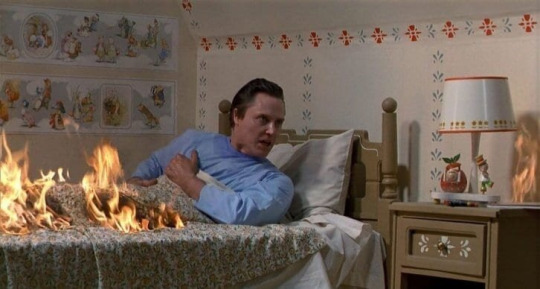
The Dead Zone is about a man who wakes up from a 5yr coma and learns he has psychic abilities. Christopher Walken who plays this man has Revati sun & UBP mercury (being in a coma/waking up from sleep is also a very Pisces theme a la Sleeping Beauty)
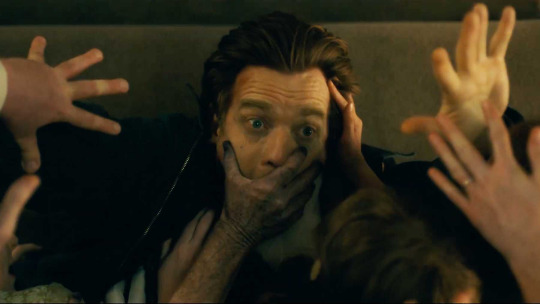
In Doctor Sleep, a sequel to The Shining, Ewan McGregor plays Danny Torrance (who has psychic abilities). He has UBP Sun

Harry's ability to see things is kinda overlooked (in Goblet of Fire for instance when he makes those predictions in Trelawney's class). We know that he sees a lot of stuff due to his connection with the Dark Lord but still. Harry's intuition has saved his ass on more than one occasion. Daniel Radcliffe has UBP Moon.
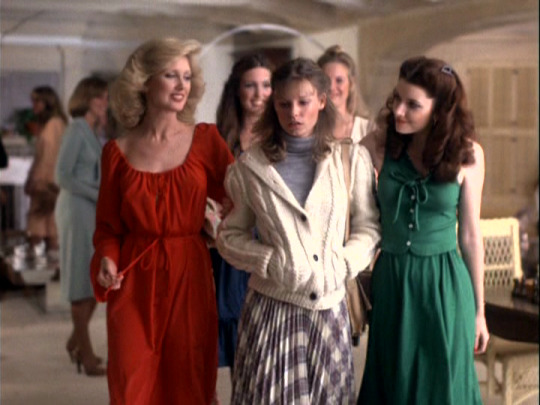
The Initiation of Sarah is a movie about a nice girl who is bullied by her sorority sisters and then unleashes her psychic powers to get even. Kay Lenz who plays her has Mars in Revati atmakaraka, UBP mercury (swati moon & rising)
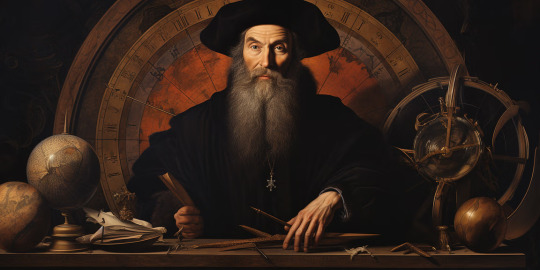
Nostradamus who had prophetic visions of the future (many of which have come true) had Rahu & Rising in UBP
This brings me to Pisces' connection to time travel because if you think about it having premonitions and making prophecies is tied to an ability to see into the future; you are mentally time travelling.
I have noticed that in several instances Pisces natives are cast in time-travel movies.
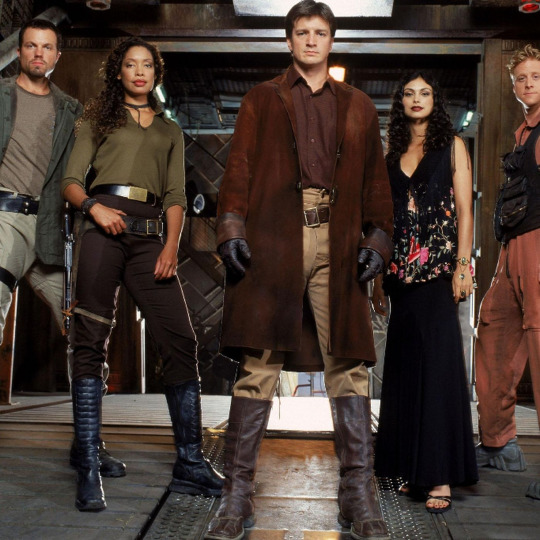
Nathan Fillion who was in Firefly & Serenity (time travel series & movie) had UBP sun, Revati moon atmakaraka

Bliss (2021) a movie about alternate realities accessed through drug induced hallucinations??? (i dont know for sure the plot is kinda dense) stars Salma Hayek, UBP Moon and Owen Wilson, Swati Moon with Saturn in Revati atmakaraka
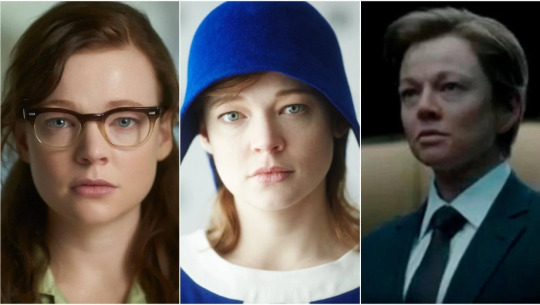
Predestination is a time travel movie starring Sarah Snook who has Revati moon & jupiter
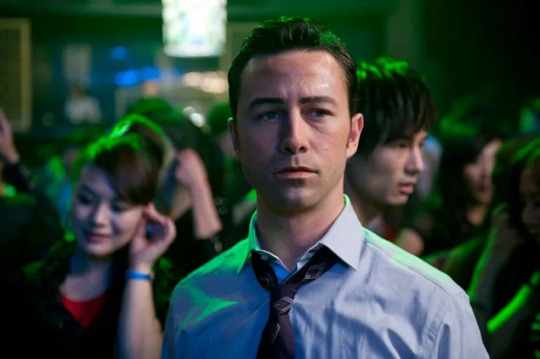
Joseph Gordon Levitt, UBP rising stars in the time-travel movie Looper as a hitman from the future who has to kill himself.

The Girl Who Leapt Through Time is a movie about a girl who can travel through time, its directed by Mamoru Hosoda who has UBP Moon and Saturn
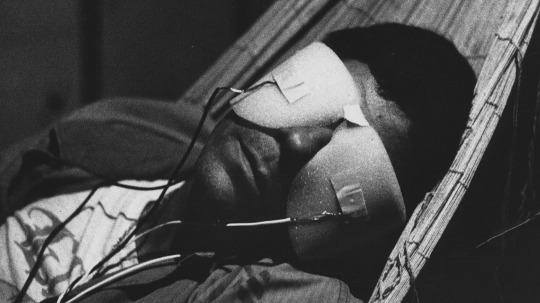
La Jetee is an experimental French short film about a man who travels through time to understand the past/present/future of WW3. Its directed by Chris Marker who has Ketu in Revati
Pisces is kind of obviously connected to the story of Sleeping Beauty (I'll explore this more in a separate post) but I think Pisces and dreaming (not sleeping but dreaming) are also connected.
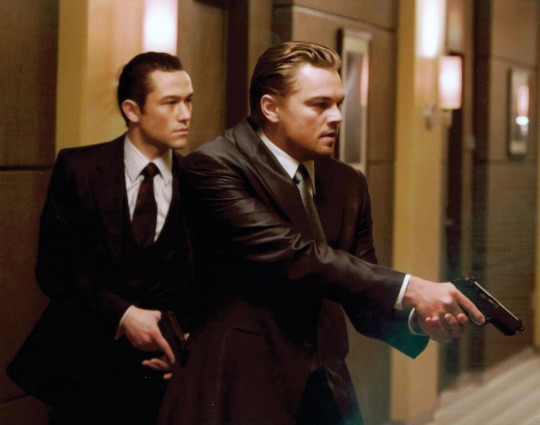
Joseph Gordon Levitt, UBP Rising stars in Inception a movie about dream thieves essentially
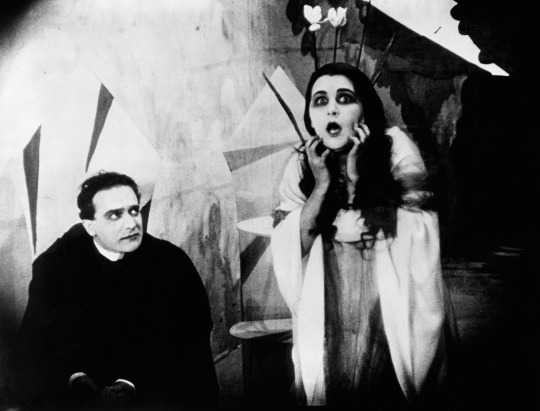
Werner Krauss, Ketu in Revati starred in The Cabinet of Doctor Caligari (1920) as a hypnotist who uses a somnambulist to commit murders.

Eternal Sunshine of the Spotless Mind, The Science of Sleep etc was made my Michel Gondry who has Venus in Revati amatyakaraka (he is also Punarvasu Rising but I'll discuss more in my post about Surrealism)

Dreams (1990) is a movie by Akira Kurosawa and is based on 8 dreams he had. He is UBP Sun & Punarvasu Rising
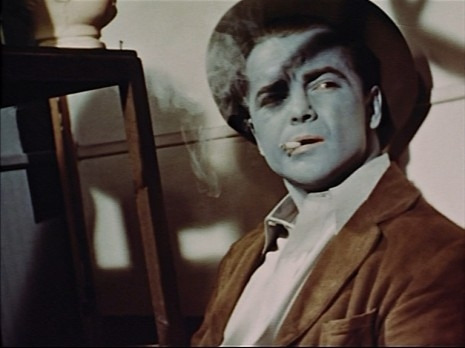
Dreams That Money Can Buy is a surrealist film about a guy who sells his dreams to others. Its directed by Hans Richter who has Revati Sun
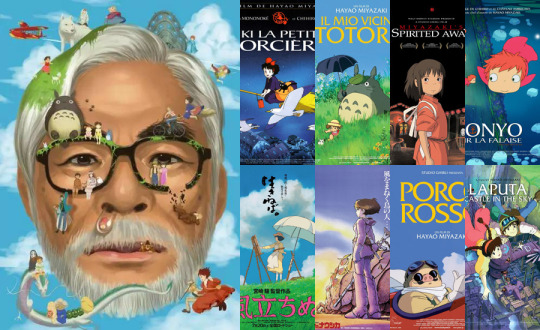
All of Miyazaki's movies have a dream-like quality and one is literally a dream (won't spoil by saying which one hehe). He is UBP Moon.
I have noticed many Shatabhisha natives be drawn to similar themes and tropes in their work.

Dreamscape is a movie about a psychic who works for the President of America. Its directed by Joseph Ruben who is Shatabhisha Sun & Jupiter (he also has Venus in UBP) and stars Dennis Quaid (Punarvasu Moon) as the psychic.
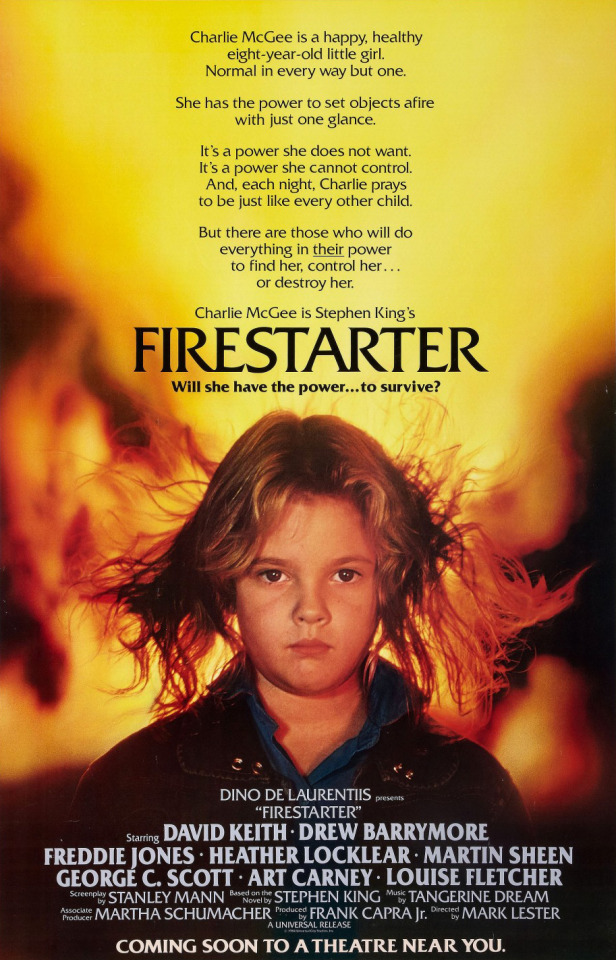
Firestarter is a movie about a child with psychic powers and stars Drew Barrymore who is Shatabhisha Sun & Punarvasu Moon
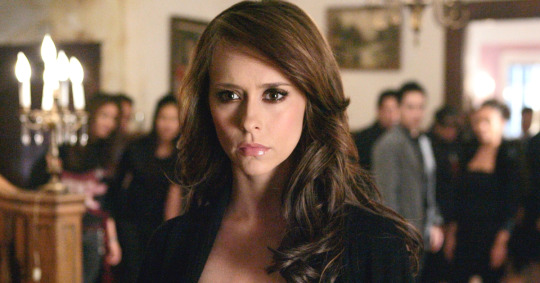
Jennifer Love Hewitt, Shatabhisha Moon starred in The Ghost Whisperer as a person who can communicate with ghosts.
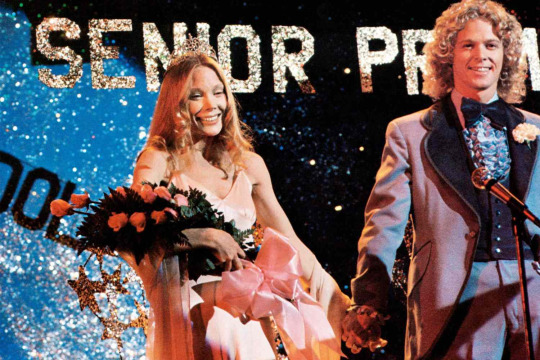
Sissy Spacek starred in Carrie about a girl who has supernatural powers. She has Shatabhisha Moon

Scott Bakula who starred in Quantum Leap, a TV series about a scientist stuck in time, has Shatabhisha Moon
I hope this post was interesting and informative, pls lmk if you have any other examples!!
#vedic astro notes#astrology observations#astrology notes#astro notes#astro observations#vedic astrology#sidereal astrology#nakshatras#astrology#astroblr#pisces#revati#uttarabhadrapada#purva bhadrapada
263 notes
·
View notes
Text
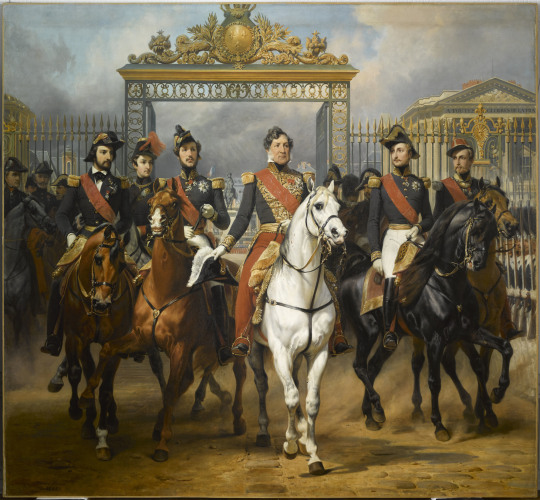
Louis Philippe and His Sons
Artist: Horace Vernet (French, 1789–1863)
Genre: History
Date: 1846
Medium: Oil on canvas
Collection: Palace of Versailles, Paris, France
Depicted People:
Louis Philippe I
Prince Ferdinand Philippe, Duke of Orléans
Prince Louis, Duke of Nemo
Prince Henri, Duke of Aumale
Prince Antoine, Duke of Montpensier
Description
Louis-Philippe and His Sons Riding Out from Versailles is an 1846 oil-on-canvas painting by the French artist Horace Vernet. It features a group portrait of Louis Philippe I and his sons riding out from the Palace of Versailles. Versailles, once the residence of the House of Bourbon during the Ancien régime before the French Revolution, had been abandoned for several decades. During the July Monarchy Louis Philippe oversaw its restoration as a national museum. Vernet's painting commemorates its inauguration on 10 June 1837. The king rides out through the gates accompanied by his five sons the Duke of Orléans, the Duke of Nemours, the Prince of Joinville, the Duke of Aumale and the Duke of Montpensier. Orléans, the king's eldest son and heir, had subsequently died in a carriage accident in 1842.
The painting was commissioned by the king to hang in Versailles, where it remains.
#painting#history#louis philippe i#prince ferdinand philippe#prince louis#prince henri#prince antoine#french empire#french monarchy#french monarch#equestian#french history#oil on canvas#palace of versailles#france#horses#gate#uniform#horace vernet#french painter#french art#french culture#artwork#oil painting#19th century painting#father and sons#house of bourbon
28 notes
·
View notes
Text

“I would like to understand why the daughters of the deposed king D. Miguel of Portugal contracted marriages a thousand times more advantageous than the princesses of the house of orleans, the position was the same and being quite sincere the princesses of the house of orleans were very beautiful.” - Submitted by Anonymous
20 notes
·
View notes
Text
le départ
Lou + Rosie, a succession of trains, and a Westland Lysander, for @mercurygray! A follow-up to this wonderful piece, an AU in which Merc’s Joan and my Louise are running an escape line.
It is a morning of ragged cloud and fitful sunshine, the southern outskirts of the city rinsed by the recent rain and buffed up to a shine by the wind. The cold, hard light throws everything into sharp relief: the acres of cheap housing, the wasteland of railway sidings and warehouses and factories, the handful of people waiting on the platform at Ivry. They carry bags and suitcases and have a dark, shuttered look about them. No one speaks. This is Paris in its fourth year of occupation: the silver city, tarnished and battered, silence and suspicion amongst strangers.
Louise and Robert stand apart from the other travellers, huddled against the wind, his arm around her shoulders and hers around his waist. Casual, patient, as though none of this really matters. They are just a young suburban couple, newlyweds, heading to the country for the weekend.
The Bordeaux train draws in from the Gare d’Austerlitz, wheezing steam, half an hour late and already packed, even in the first-class carriages. Louise appeals to an elderly woman sat by the window, asking if she would move so that she and her husband might sit together. The woman sighs and grumbles, glaring at them with rheumy eyes, but eventually they are settled, shoulder to shoulder, hip to hip. She can feel the warmth of him even through the layers of his clothing, the sweater Ferraby had offered up, its sleeves a little too short for Robert, the suit and thick wool coat in a nondescript grey that she and Joan had chosen with care. As the train heaves itself into motion and gathers speed, he turns his head to look out of the window, and she turns her head to look at him. If only… she thinks, but stops herself.
If only we really were going away for the weekend. If only this journey would never end. If only the war was simply something happening to other people.
At Étampes, an inspector walks down the corridor, stepping over people and luggage, calling for tickets. He stops at their compartment, a police officer behind him, and there is the dutiful pause while people rifle through handbags, search through pockets. Louise takes out her ticket, waits a second while Robert does the same, following her lead, and then hands both of them over. The man glances down at the tickets, and up again at their faces, and passes them back. Then the door slides closed and he and the policeman are gone.
With great sighs the train traipses on into the flat farmland of La Beauce, where the fields are brushed green with sprouting winter wheat and the sky is a cool blue.
In the outskirts of Orléans they slow. The marshalling yards of Fleury-les-Aubrais have recently been bombed and everywhere there is wreckage, wagons thrown about, rails twisted and knotted, the ruins of buildings still smoking. In silence people stare out of the window at these signs of what is to come, while the carriages rattle and jolt over the single track that has been repaired.
At the station itself, doors slam and people come and go. They hear heavy footsteps in the corridor, Germans this time, two sergeants of the Feldgendarmerie in their grey uniforms and silver breastplates, flanking another man in a belted raincoat and trilby, a uniform in itself. Louise and Robert hand over their tickets and the identity cards bearing the names Anaïs Hélène Gauthier and Maxence Charles Gauthier.
“You are travelling to Angoulême?” the Gestapo officer asks. He speaks French well, which she always finds unsettling: no hope of hiding behind incomprehension, of playing for time with confusion.
“Yes.”
“For what purpose?”
Louise glances at Robert with a small smile, reaches for his hand. “We’re having a few days away.”
The German looks between them and then back at their papers, turning them over in his hands, lingering. Time seems to slow. Louise holds Robert’s hand tightly in hers, feeling his pulse racing against her own skin, just as her thoughts are racing. How would she act if she were entirely innocent, if she really were a young Frenchwoman taking a trip with her husband? How would Anaïs Gauthier behave? She would hardly care at all, would sit there and deal with it, this little interruption to her day.
And so Louise puts her hand on Robert’s cheek, tilts his face down to hers, and kisses him. Nonchalance, Gallic insouciance, in the face of everyday inconvenience.
At last the Gestapo officer turns his attention away from them. Questions are asked of the other passengers in the compartment, and then he tells them all to wait and steps outside with their documents.
The elderly woman sighs, and the two men sat next to her, minor bureaucratic types, mutter in low tones, complaining about the delay, wondering if they will still make their meeting in Blois. Louise says nothing. Sweat prickles under her arms, in the small of her back. She can feel the dampness of Robert’s hand, as well, and still the thud of his pulse.
He puts his mouth close against her ear and says, so quietly only she can hear: “What are they doing?”
She forces herself to smile, coyly, as if he has just whispered an endearment. She turns her face into his neck and then tips her head up to murmur into his ear, her voice no louder than a breath. “Checking lists. Noting names. Don’t know.”
The door opens again with a crash and the officer reappears. “Alright,” he says, passing the documents back, before he and his military policemen head into the next compartment.
Don’t ever look relieved, she had been told at Beaulieu. The instructor’s voice echoes in her ear, even at the distance of two years and hundreds of miles. Don’t look relieved, because being relieved means you were scared, and being scared means you have something to hide. Louise keeps her expression calm, indifferent, but as she returns her identity card to her handbag Robert smiles at her, and she can’t help but smile back, a hint of triumph in her eyes.
The train jolts forward, and they are moving again at last, on through the city of Orléans itself, the city of la Pucelle, Sainte Jeanne d’Arc. Louise thinks briefly of Joan, her Joan, who had seen her off the night before last with deux bisous and a handful of francs Louise was sure had come from Joan’s own purse and not from London. Hardly a maiden, dressed not in breeches and armour but in immaculate skirt suits, and still the kind of woman to be spoken of with something approaching reverence.
Louise smiles a little to herself, looking out of the train window at France, for which she had come in the first place, and thinking of Joan, and Ferraby, and all of her comrades, and every airman she had guided back into the fight, for whom she had stayed.
Soon they are out of the city and into the bare fields of the floodplain with the line of the river visible as a distant fringe of willows. Robert dozes, his cheek resting against the top of her head, while Louise pretends to sleep and instead keeps track of the other passengers in the compartment. The pair of government officials leave for their meeting in Blois, and two young women take their place, gossiping in low and urgent voices about a man they know, a real salaud, who is going with two girls at once. Should they tell the girls? The debate goes on without ever reaching a conclusion. At Amboise, the man sat next to Louise disembarks, and a mother with a small child replaces him. The train rumbles across the river on a stone bridge and edges its way through the drab suburbs of Tours. Only the elderly woman remains, but when Louise makes a show of waking, just before Saint-Pierre-des-Corps, she sees that the woman is fast asleep, her head nodding on her chest. No one who heard Louise mention Angoulême sees them stand up and retrieve their suitcase and shuffle down the corridor to the end of the carriage.
Robert jumps down onto the platform and takes the suitcase from her, and then holds her around the waist and lifts her down beside him. The guard blows his whistle and the train draws away, leaving a scattering of passengers behind. They file towards the exit while Louise and Robert walk towards the concourse and the ticket office.
They stand on the platform on the other side of the station, waiting for the slow train to Vierzon. It is deserted: there is no one around, no one else taking the train with them, no one to notice them on this February afternoon with the sun casting long shadows and the wind cold on their faces. When the train arrives it is empty, too, and they climb into a compartment and lean back against the faded and threadbare plush.
She touches his arm. “Not long, now,” she says, and he nods, looking at her steadily.
Outside on the platform a whistle blows, and the train lurches forward, on into the countryside. Through their pale reflections in the window are the flat fields of the floodplain between the Loire and the Cher, stretching away to the horizon, brushed with the glow from a setting sun. The sky is a luminous blue like the blue of a stained-glass window. Poplars stand like plumes in the drift of sunlight.

At Azay-sur-Cher a young man is waiting for them. He flicks away the stub of his cigarette and comes forward to greet Louise, kissing her on both cheeks while the two of them go through the little rigmarole of the double password.
She turns to Robert, puts a hand on his elbow. “This is Guy, our air movements officer,” she explains. To the Frenchman she says: “Voici Bob!”
Guy grins, a handsome, boyish grin. “Salut, Bob, ça va?”
“Uh…” Robert takes his outstretched hand and shakes it. “Ça va?” he replies, glancing at Louise with a small smile, and she nods, beaming back at him, both of them remembering sitting in the attic of the atelier, stifling laughter as he stumbled through the phrases she was trying to teach him.
Guy leads them to a shed behind the station house where four bicycles are stored. He wheels the spare one beside him as they cycle off into the gathering dusk, over the level crossing and onto a single-track road meandering through the fields. The land is flat and bare and unending, broken only by lines of poplars planted as windbreaks, willows along the rim of a drainage ditch. Through the trees to the east the moon is rising, replacing the dying sun with its own silvery light.
After a few miles they turn off onto a farm track and bump over ruts and potholes out into the fields. Guy brings them to a halt by a small copse, and dismounts to survey the pasture stretching out before them, looking left and right, squinting into the gloom, taking a few experimental strides over the rough earth and patchy grass.
He returns to them and starts speaking to Louise, and she translates for Robert. “He says things look fine. All okay. There are no obstructions and the ground is firm enough for the aircraft to land. The only worry tonight is fog.”
Behind the copse is a dilapidated barn, empty but for some rusted farm equipment half-covered by canvas tarpaulins. A scant covering of straw is strewn across the floor, and cobwebs hang thickly in every corner and across the walls. Guy and Louise move with well-practised ease, slipping wordlessly into the routine. The Frenchman crosses over to a bundle of fence posts propped against the wall, and selects three stakes about four feet long, each with an end sharpened to a point, while Louise lifts the corner of a sheet of tarpaulin and retrieves some lengths of string and four torches, and tests each one in turn.
“Wait here,” she tells Robert, and she and Guy head outside to set things up.
There is just enough light to see by as they walk out into the field. A hundred yards out Guy plants one stake in the ground and waits while Louise fastens a torch to it. Then he sets off into the distance, marching with wide steps as if performing some ancient and arcane ritual, while she follows behind him, their footsteps leaving a trail in the dewy grass like the wake of a ship in still water. They position the second stake and the second torch, and pace to the right to repeat the process for a third time. Guy glances back at their work, the stakes only visible as vague shadows, and nods at her, satisfied.
Back in the barn they make themselves as comfortable as possible, unwrapping the food Louise and Robert have brought in their suitcase, and sipping ersatz coffee from a flask Guy produces from his satchel. They leave the door open despite the chill night air, using the light of the moon to see rather than risking switching on the torch Louise has kept in her coat pocket.
Guy turns to Robert and says something in French, a question which makes Louise laugh, a bright, young sound out of place in the shadowy and derelict barn. Robert looks at her, curious, and she translates for him: “He asks if you’ve flown before.”
Robert starts to smile. “Just a couple times,” he says wryly.
She looks back at the Frenchman. “Bob is an American airman. A pilot.”
Guy nods, realisation dawning, and makes an apologetic shrug. He says something else, and again Louise laughs and explains for Robert. “He says, she never tells me anything. Whether our guests are British or American, soldiers or airmen. Sometimes I ask foolish questions, but it is good security.”
Another flutter of French passes between them and they share soft laughter at some private joke. Then Guy straightens up and begins speaking to Robert, breaking off every now and then for Louise to translate.
“He says as you have flown many times before you know there is nothing to fear. But we must still explain to you our way of doing things. As it will be quite different to what you are used to.”
She waits while Guy brushes some straw aside and lays out three coins on the floor, forming an inverted ‘L’. “We have positioned three markers out in the field,” she explains, her soft English following Guy’s rapid French, “like this. The pilot will touch down at the first marker, here. He brakes, and stops at the second marker. Then he turns around the third marker and comes back to the first, where we’ll be waiting.”
Again she pauses. “The passengers jump down and unload their luggage, and then you climb up the ladder. There will be a parachute in the aircraft for you, and a flying helmet and oxygen mask.”
Robert frowns. “Will we need oxygen?”
“No, no, but that’s where the microphone is. For the intercom.” Louise smiles at him as he nods. “Every airman I’ve met wishes we had throat microphones like you Americans, but…” She shrugs. “Everything will be plugged in, but you’ll have to flick the on-off switch on the front of the mask when you want to speak.”
They take him through the procedure a second time: where they will stand, where the Lysander will land and turn, what they all must do. Robert listens intently, his eyes fixed on Guy and then on Louise in turn, a small furrow between his brows. It will be fine, they tell him. The whole thing will take no more than five minutes.
“—comme sur des roulettes,” Guy says.
Louise searches for the best translation, and settles on: “Easy-peasy.” She smiles again. “Is that all alright?”
Robert nods. “Yeah. Easy-peasy,” he repeats, and smiles back at her. “Will you, uh—will you tell him that I understand? And will you thank him for me, please?”
She turns to Guy and passes the message along, and the young Frenchman grins, and reaches out to shake Robert’s hand once more.
Presently Guy goes outside to check the landing zone, worried about the police, German troops, worried, above all, about fog. Alone again, Louise and Robert sit close together, leaning into each other.
“You’ll be in England by daybreak,” she tells him. “Before, even.”
“Yeah.” He is quiet for a moment. “Where are you headed? Back to Paris?”
“Mmm. Yes.”
Neither of them says anything more, aware that time is running out, wanting to hold on to the illusion that the night will spin on forever. They wait in silence, even when Guy returns, watching the rectangle of sky through the open door. Overhead, Orion the hunter tilts like a windmill, dragging a whole panoply of constellations behind him, and the moon climbs higher and higher, flooding silver across the fields.
At midnight, Guy gets to his feet and stretches. “Let’s get ready,” he says to Louise. She and Robert follow him out into the moonlight, ghostly shadows moving across the pale countryside. Underfoot the ground is hard with frost. Ribbons of mist are wrapped around the trees along the edge of the field and a bank of fog lies over the river.
“Look,” Guy mutters, pointing. “Fog. It could ruin everything.”
“I know,” Louise whispers back. “But there’s nothing we can do. We just have to wait.”

They wait. Dark figures in a monochrome landscape, staring at the stars, painted by the moon. Cold seeps into them. There are the sounds of night, the distant barking of a dog, the susurration of the icy breeze, and underneath everything the sound of the nearby river. And then something else.
“Can you hear that?”
“What?”
It dies away. Did she imagine it? But the sound returns, a murmur becoming a rumble.
“That’s it!”
Now there is no doubt: an aero engine, the sound coming and going on the breeze and then settling to a steady drumbeat. Louise hands the torch to Guy and he points it up into the night sky, flashing the letter ‘P’ in Morse code. The letter ‘Q’ comes back to them, a small star blinking in the blackness.
Robert points. “I see it!”
Louise turns on the first torch and sets off to the other stakes, running, stumbling on the hard, uneven ground. She reaches the second marker and snaps the torch on, then crosses to the third. As she sprints back to where the men are waiting she sees the Lysander above her, a black shape against the spray of stars.
The aircraft turns towards them, shedding height, growing larger and larger, tilting in the flow of air. The noise of the engine rises and falls as the pilot jazzes the throttle. Suddenly, shockingly, its landing lights are switched on, as brilliant as spotlights so that on the ground they seem exposed to view like figures on a stage. Then, slowly, deliberately, it touches down, bounces, hits again, and rumbles down the flarepath. They watch it turn at the second lamp, and the third, and come back towards them where they wait, deafened by the din, beside the first.
The slipstream hits them as the aircraft turns once more and points into the wind. Guy waves at the pilot in the cockpit and runs up to talk to him. In the rear of the cockpit two passengers are moving. The hatch slides back and a figure emerges and climbs down the ladder to the ground.
Louise turns to Robert, glancing at his eyes, the slope of his nose in the moonlight. She clutches the sleeve of his coat, almost desperately. He faces her, puts his mouth close to her ear.
“Thank you,” he says, half-shouting to be heard over the engine. “Thank you for everything. I wish I could say more.”
She shakes her head, and leans back so that he can see her smile. Then she leans up on her tiptoes. “In this line of work we consider it bad luck to say ‘good luck’,” she tells him, her own voice raised. “So I’ll just say bon voyage. And I hope never to see you in France again.”
He grins back at her. By now the second agent is on the ground and Guy is shouting from beside the nose of the aircraft, his words picked up by the propellor blast and thrown back at them in disorder. “Need—go! Get—quick!”
Louise ushers Robert over to the Lysander. Time hurtles at her—the engine roaring, the propellor a blurred disc against the moonlight, the stars rampaging across the sky—and she just stares at him, wanting to tell him so many things and unable to say them. He nods, as if he has read her mind, and puts one hand on the side of her face and leans down to kiss her.
Then he is gone, up the ladder and into the cockpit, and the pilot gives the thumbs-up, and Louise and Guy run back from the aircraft.
“Go!” Guy yells, gesturing downwind with his hand. “Go, go!”
The engine gains noise, roaring and raging at the night, straining for a moment against the brakes before lurching forward, bumping along, gathering speed, with Robert looking back at her, his face no more than a smudge of whiteness and shadow. Then abruptly the Lysander is in the air, a matte black shape against the luminous black of the sky, climbing, turning, swinging through the stars, and leaving Louise standing in the backwash, her hair blowing in the wind, her coat flapping around her, in tears.
The sound of the Lysander fades into the minutiae of the night. Suddenly she is cold.
Beside her, Guy is shaking hands with the two men, welcoming them to France. She stands for a moment longer, running through what she must do: clear up in the field and the barn, share out the men’s clothing in her suitcase amongst the new agents, put the identity card for Anaïs Gauthier into a slip in the lining and retrieve the papers for Irène Françoise Brochard. Cycle to the safehouse Guy has found for them, and, in the morning, catch the first train to Vierzon and escort the agents to Paris. Move on, get back to work. Keep going.
Guy is looking at her expectantly. She wipes the tears from her cheeks and puts on a smile and walks over to the men waiting for her.
#This was meant to be short. And then.#floydmtalbertfic#OC: Louise Johnson#OC: Joan Warren#C: Rosie Rosenthal#I had a lot of fun writing this; Merc! I hope you enjoy 💕#Fic: le départ
20 notes
·
View notes
Text

Mademoiselle de Blois. Par Emile idsidore Deroy.
#emile isidore deroy#Françoise Marie de Bourbon#mademoiselle de blois#duchesse d'orléans#bourbon orléans#royal bastards#François de Troy#Bâtard légitimé#fille de france#légitimée#blois#kingdom of france#house of bourbon#fille légitimée
2 notes
·
View notes
Text
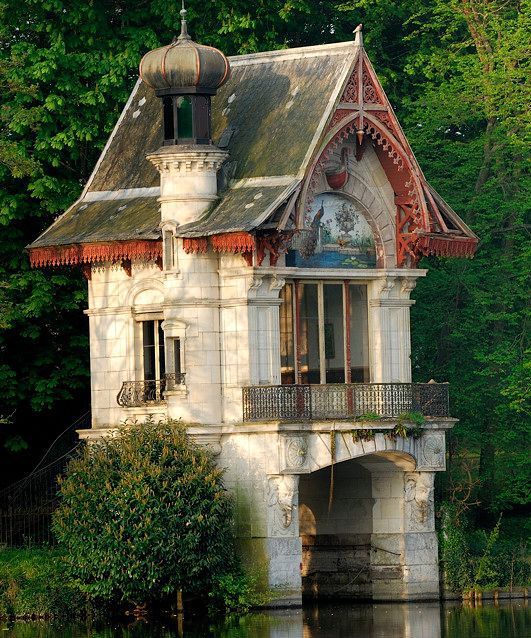
Boat House on the bank of the Loiret, Orléans, France
95 notes
·
View notes
Text
Infanta Maria Francisca's Wedding Tiara
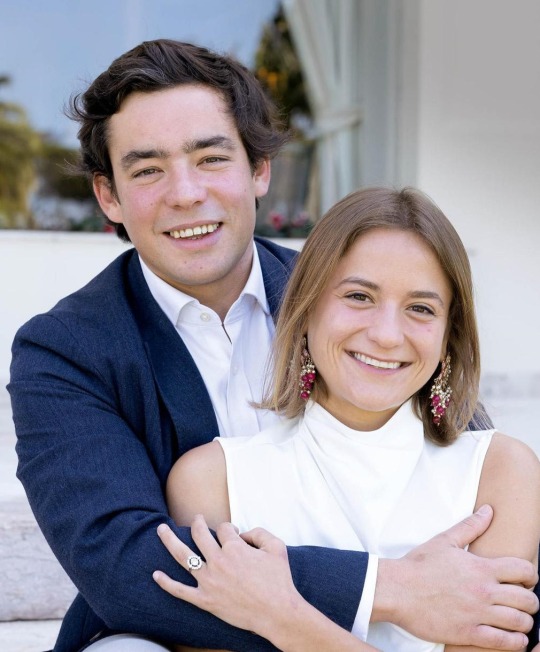
The Duke and Duchess of Braganza have announced that the wedding of Infanta Maria Francisca, Duchess of Coimbra, and Duarte de Sousa Araújo Martins will take place on Saturday, October 7th at the Basilica of Our Lady and Saint Anthony within the Palace of Mafra. Thanks to an interview with Observador, we know all about the bride's planned wedding jewelry. The quotes below have been run through Google translate.
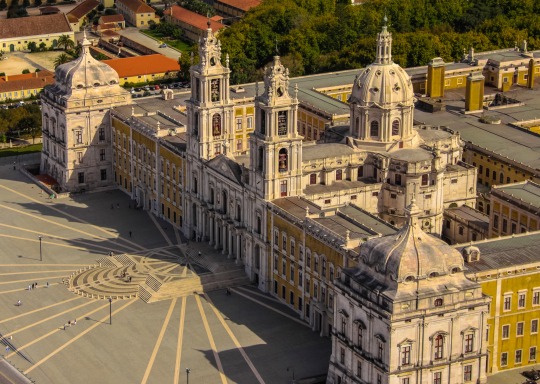
Infanta Maria Francisca will wear Queen Amélie’s Diamond Tiara which is the same one worn by her mother, the Duchess of Braganza, at her wedding in 1995. "I feel very honored, very lucky, that they lent it to me, because it is a very valuable tiara. I feel that I am not that worthy of wearing the tiara and I am really happy that they gave me this opportunity." I don't have a post on it yet but here are some from other blogs. It was made in 1886 by Leitão & Irmão and was a wedding gift to Queen Amélie from her father-in-law, King Luís I of Portugal, so you'll sometimes see it called the Dom Luis Diadem.
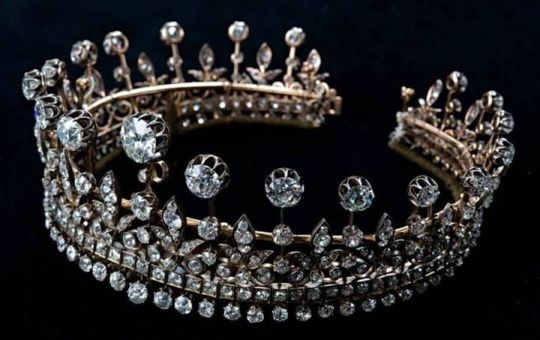
Along with the tiara, Maria Francisca will wear the same diamond earrings that were worn by her mother on her wedding day. They were a gift from the Duchess of Braganza's mother, Raquel Pinheiro de Castro Curvello.
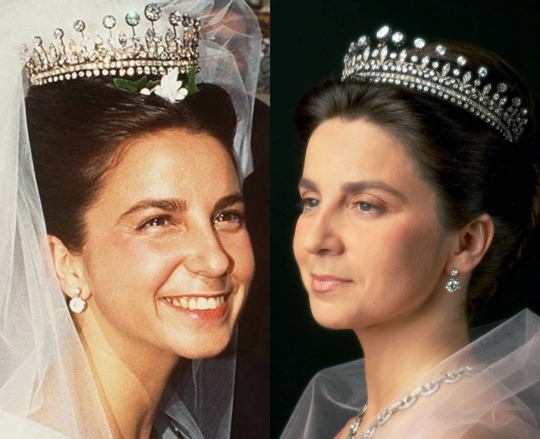
Maria Francisca will also wear a sapphire and diamond bracelet that belonged to Queen Amélie on loan from a friend. "A very dear friend of mine, who has an antique shop, is going to lend me a Queen Amélie bracelet. He told me 'I have this bracelet from Queen Amélie that I bought at an auction house and I insist that you wear it because it belongs to your family and has sentimental and historical value'."
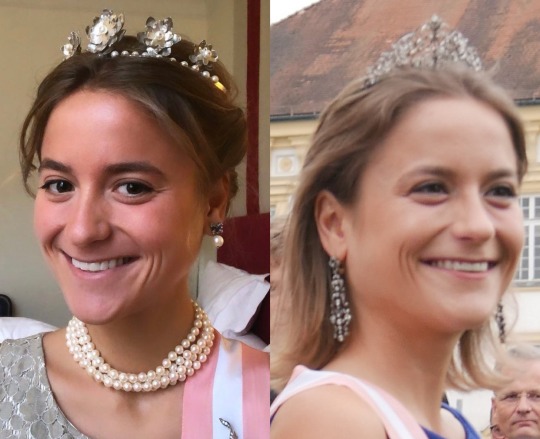
For the reception after the wedding, Maria Francisca will wear a pair of earrings that belonged to her grandmother and namesake, Princess Maria Francisca of Orléans-Braganza. The diamond from her engagement ring was taken from these earrings and the groom replaced it and another diamond with emeralds. "Both in the ring and in the earrings, I have my grandmother Francisca and Duarte represented."
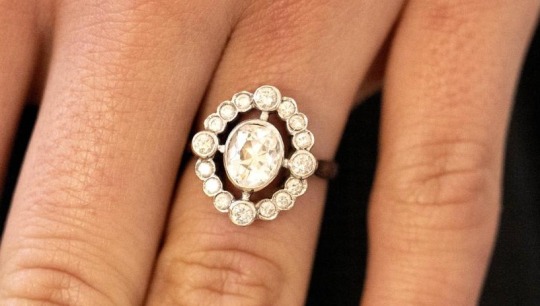
The former Portuguese royal family are generally well regarded and even attend state banquets in Portugal. We already know that some of the Lux royals will be there and I also expect other former royals to attend.
The wedding will be televised at 3:00pm local time on TVI (Televisão Independente) and I'll post a non-geoblocked link if I can find one.
#Tiara Talk#Infanta Maria Francisca#Portugal#Portuguese Royal Family#tiara#bridal tiara#Duchess of Braganza#royal jewels#royalty#royals#diadem
119 notes
·
View notes